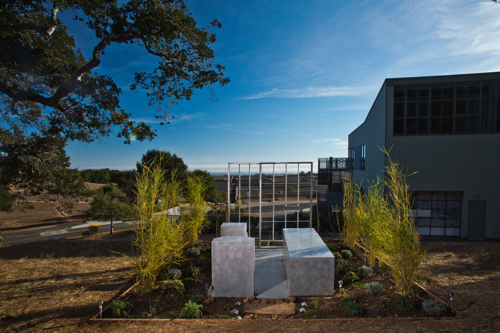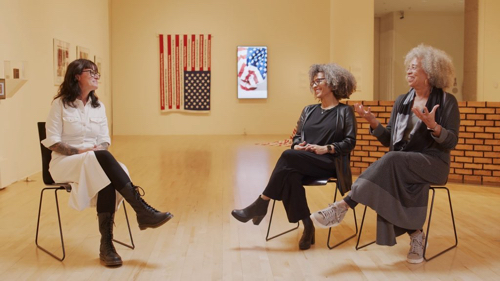Mellon Foundation Award To Support UC Santa Cruz’s ‘Visualizing Abolition’ Initiative
Visualizing Abolition is an ongoing public scholarship initiative undertaken through the UC Santa Cruz Institute of the Arts and Sciences, designed to foster creative research and to shift the social attachment to prisons through art and education.

The Andrew W. Mellon Foundation has awarded a $1,977,000 grant to support Visualizing Abolition, the nation’s most ambitious and sustained art and prison abolition initiative, led by UC Santa Cruz Feminist Studies Associate Professor Gina Dent, and Rachel Nelson, Director of the Institute of the Arts and Sciences.
The funding provides three years of support for the development of new work by artists, musicians, humanists, and other researchers. Programs will include public online and in-person events, art exhibitions, postdoctoral fellowships, a faculty working group, and curriculum development that reaches across prison borders.

Visualizing Abolition launched in fall 2020 at UC Santa Cruz to examine the ways people see and understand issues of mass incarceration, detention, and policing in the United States and abroad, challenging the prevailing social, economic, and political worldviews that prisons promote.
“Over the last, tumultuous year, we have created art exhibitions and online events bringing together artists and scholars to engage with the issue of prisons, carcerality, and abolition,” Dent said. “What we have come to understand is that there is a strong cultural attachment to prisons despite all the data that prove they perpetuate inequities and fail to make people safe.”
“Our goal with Visualizing Abolition is to emphasize the roles art, music, and culture can play in a different mode of knowing, enabling us to move towards a more just future. This funding from the Mellon Foundation bolsters our efforts and gives us the resources to build something lasting at UC Santa Cruz. We are so appreciative.”
“We are beyond grateful to the foundation for this support,” Nelson added. “It’s especially thrilling to be able to continue this incredibly meaningful collaboration between the arts and humanities. The Institute of the Arts and Sciences was created in the Arts Division with the belief that the arts can bring together people from across the campus and in our communities around shared social justice concerns. Partnering with Professor Dent last year, we were able to highlight UC Santa Cruz’s long and important commitment to prison abolition across the disciplines by featuring the work of current and emeriti faculty in the social sciences, arts, and humanities along with that of many collaborators. It’s gratifying now to be able to cultivate new creative research and teaching on art and abolition through exhibitions and educational endeavors that cross prison borders.”
The award funds a range of exhibitions and programming for the campus community and larger publics. A partnership with the San José Museum of Art, the largest contemporary art museum in Silicon Valley, will help to ensure the program’s reach.
“This is a transformative gift for UC Santa Cruz,” Chancellor Cynthia Larive said. “Visualizing Abolition is poised to be one of the largest, most expansive public scholarship initiatives ever on art and prison abolition. This award allows us to increase the impact and visibility far beyond our university of the important scholarship unfolding on our campus about incarceration and social justice.”
Original Link: https://news.ucsc.edu/2021/10/mellon-visualizing-abolition.html.
